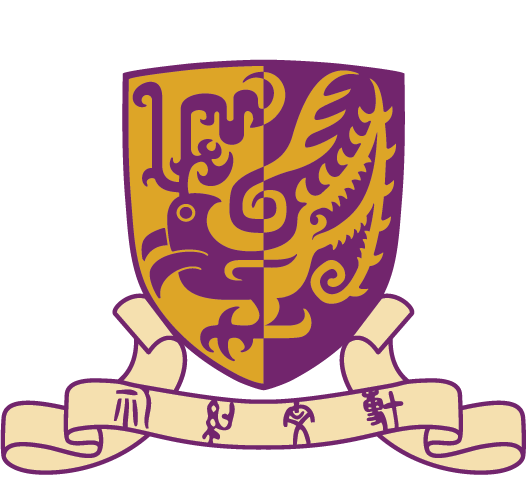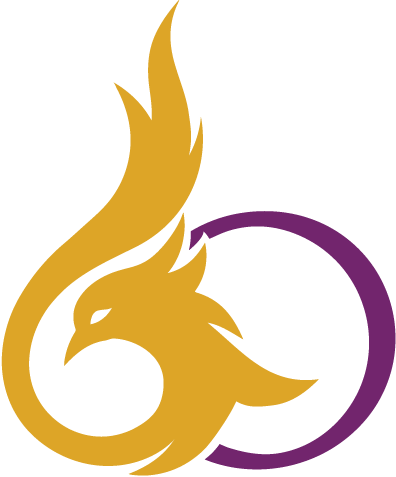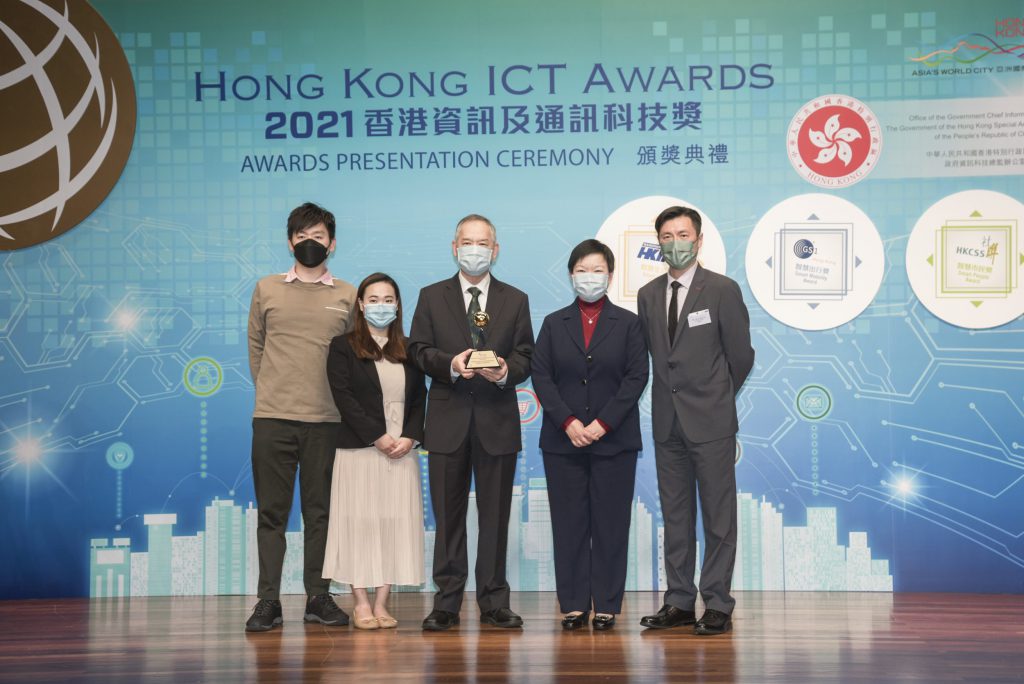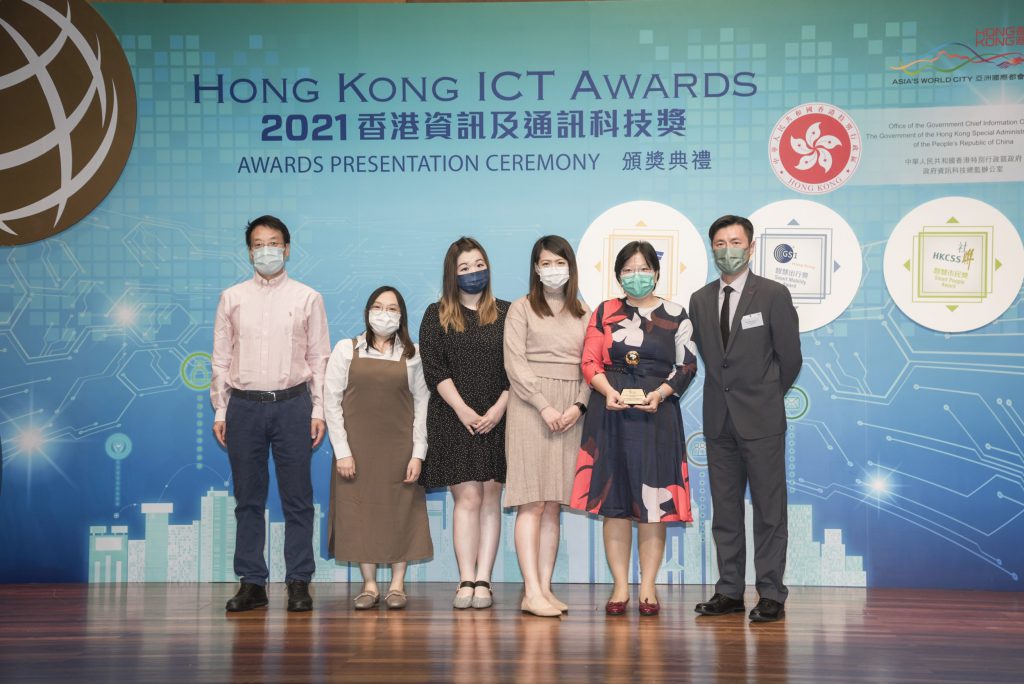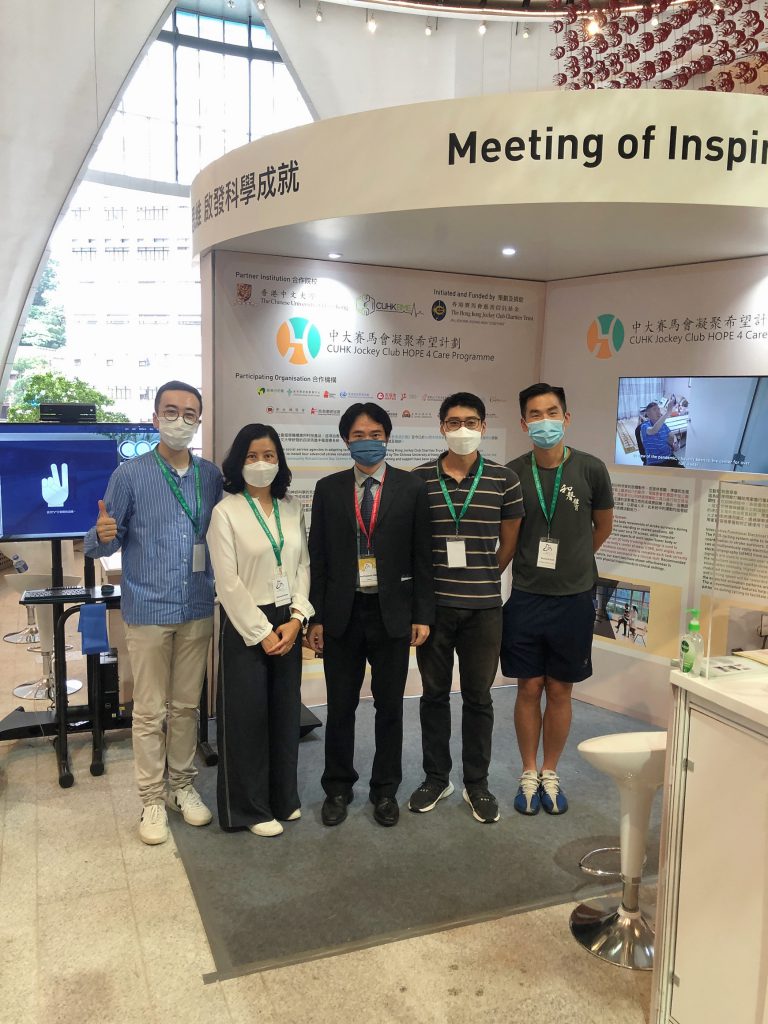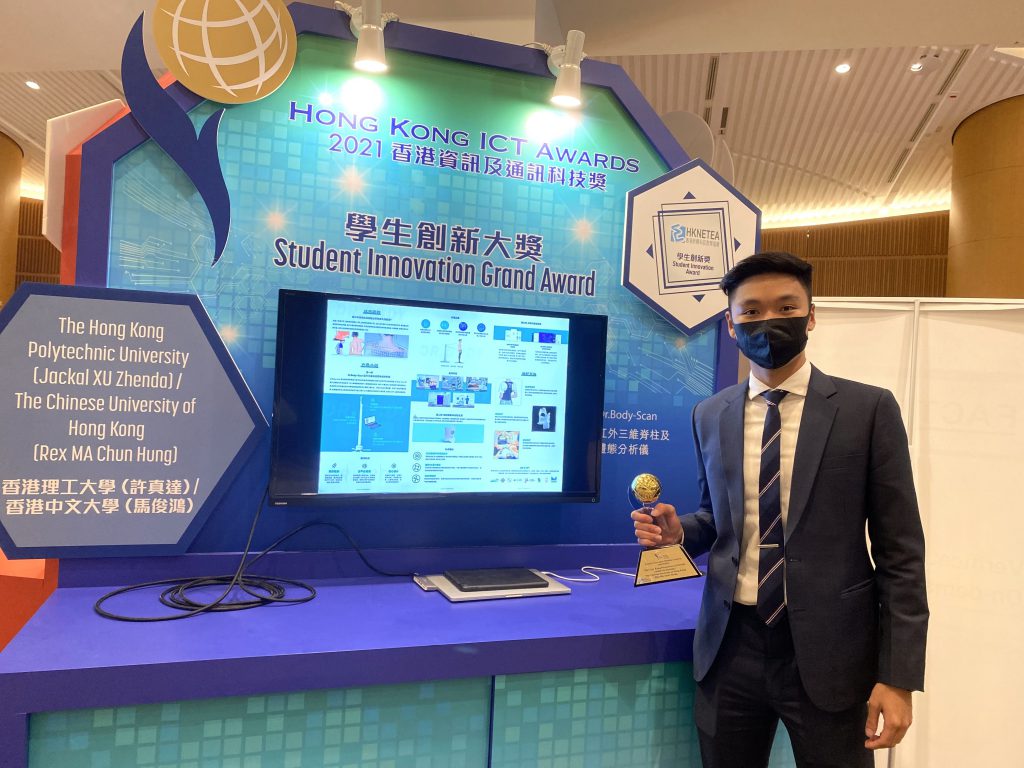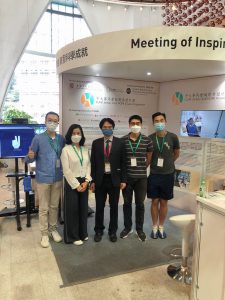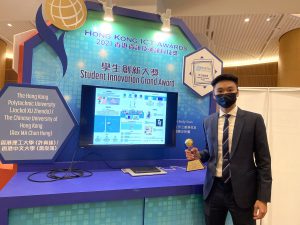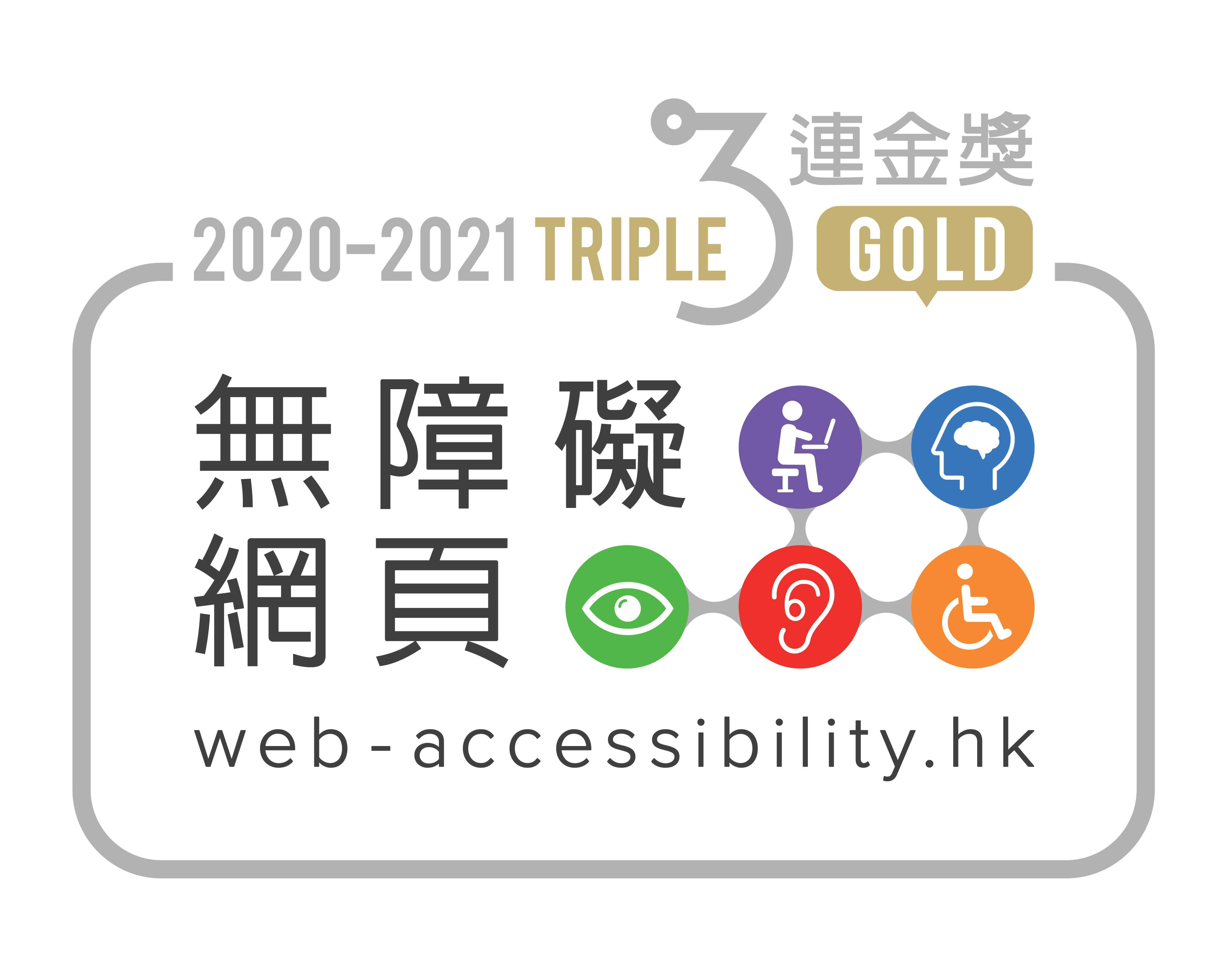CUHK
News Centre
CUHK innovative projects win five ICT Awards 2021
Faculty members and students of The Chinese University of Hong Kong (CUHK) have won five awards in the prestigious Hong Kong ICT Awards 2021 for developing inventions and technological solutions with major potential for social impact.
The Hong Kong ICT Awards aims to recognise and commend local ICT industry elites. At the same time, it encourages the application and development of innovation and technology (I&T) solutions with economic and social benefits and ultimately enhancing the overall competitiveness of Hong Kong. This year five CUHK teams took home awards in the smart living, smart people, and student innovation categories. CUHK competed against a record number of entries with over 2,100 applications received this year. The winning projects from CUHK are:
Smart People (Smart Education and Learning) – Gold Award
CUHK Jockey Club AI for the Future Project (led by Professor Yeung Yam, Department of Mechanical and Automation Engineering)
Funded by The Hong Kong Jockey Club Charities Trust, CUHK Jockey Club AI for the Future Project brings together the strong expertise of CUHK Faculties of Engineering and Education. The Project’s objective is to create a new AI curriculum and a sustainable AI education model, with relevant supporting infrastructure, to establish an ecosystem conductive to AI education for Hong Kong’s secondary schools and to equip the next generation with AI knowledge and ethics. In 2021, the Project’s curriculum team, together with six local pioneering schools, published the first-ever AI Teaching and Learning Pack for junior secondary students.
Robot for Autism Behavioral Intervention (RABI) (led by Professor Catherine So, Department of Educational Psychology)
Children with autism spectrum disorder (ASD) have impairments in language and social communication. Therefore, early and effective intervention that can cater for their learning needs is required. Professor Catherine So and her team, pioneers in Hong Kong and beyond, have been developing a robot-based intervention programme, namely Robot for Autism Behavioral Intervention®, since 2016 to deal with the special learning needs of children with ASD aged 3 to 18. The curriculum encompasses self-care, emotional understanding and expression, conversation, and social skills training through personalised programmes. Special topics on sexual education and ways to handle bullying are also available. In 2020, Professor So established a social enterprise — the Science and Technology for Autism Remediation (STAR) Limited — taking her years of robot-based intervention and ASD research into the community to serve more children with ASD.
Smart Living (Smart Healthcare) – Certificate of Merit
AR-Home & AR-Centre Rehab (led by Professor Raymond Tong, Department of Biomedical Engineering)
The AR-Home & AR-Centre Rehab platform utilises state of-the-art depth sensors (e.g. Microsoft Azure Kinect) for 3D body tracking, with customised software specially designed for a virtual interactive rehabilitation environment. The research team has invited more than 16 professional physiotherapists and occupational therapists from 7 local rehabilitation centres to design 46 training exercises, including upper-limb, lower-limb, balance, and coordination training modules. Some exercises can interact with special therapeutic tools (hula hoop, yoga ball, yoga stretch resistance band, balance board, and skateboard, for example). Therapists can design personalised training plans for individuals from these modules. The team overcame the technological challenges by providing a platform for therapists to monitor users’ body movements and provide real-time posture guidance, with secure tele-rehabilitation connection with data encryption. At home, the system can be easily set up as it simply requires a mini-PC, a depth sensor, internet connection and a TV/monitor.
Student Innovation – Grand Award and Gold Award
Dr. Body-Scan (jointly developed by Rex Chun-hung Ma, Integrated BBA programme)
Dr. Body-Scan is a student entrepreneur team of CUHK’s Pre-incubation Centre (Pi Centre). Rex and his team have invented a professional medical infrared analyser tailored for the 3D evaluation of scoliosis issues. The analyser innovates beyond traditional X-rays by using infra-red imaging technology to perform 3D reconstruction and thermal imaging of the human back. Using AI, it locates the medical anatomical feature points of the human back automatically, while using the musculoskeletal model to process the 3D structures of big bones, such as backbones, for calculation. This leads to safe and reliable detection, close follow-up, long term analysis for non-surgical cases, and assistance with rehabilitation projects for scoliosis and other bad postures. Within 10 seconds, the analyser’s scan can effectively provide medical staff and patients with three-dimensional information on the spine, while users can check the test report in real-time through the APP and enjoy personalised customisation and adaptation services based on back data.
Student Innovation – Bronze Award
The All-in-one AI-based Knee Osteoarthritis Management System (jointly developed by Wong Ka Yan)
About The Chinese University of Hong Kong
As one of the world’s most innovative universities, CUHK currently has more than 1,400 granted patents in different jurisdictions worldwide. Some of these patents have been licensed to relevant industries that help bring these innovations to the market to benefit society. In the academic year 2020-21, CUHK has received 226 granted patents and filed 386 patent applications for inventions developed in the areas of medical technology, biotechnology, information technology, telecommunications, and materials science.

Professor Yeung Yam (middle), Department of Mechanical and Automation Engineering, and Professor Helen Meng (second from the right), Patrick Huen Wing Ming Professor of Systems Engineering & Engineering Management, lead the team of CUHK Jockey Club AI for the Future Project.

Professor Catherine So (second from the right) designed the Robot for Autism Behavioral Intervention (RABI) programme.
